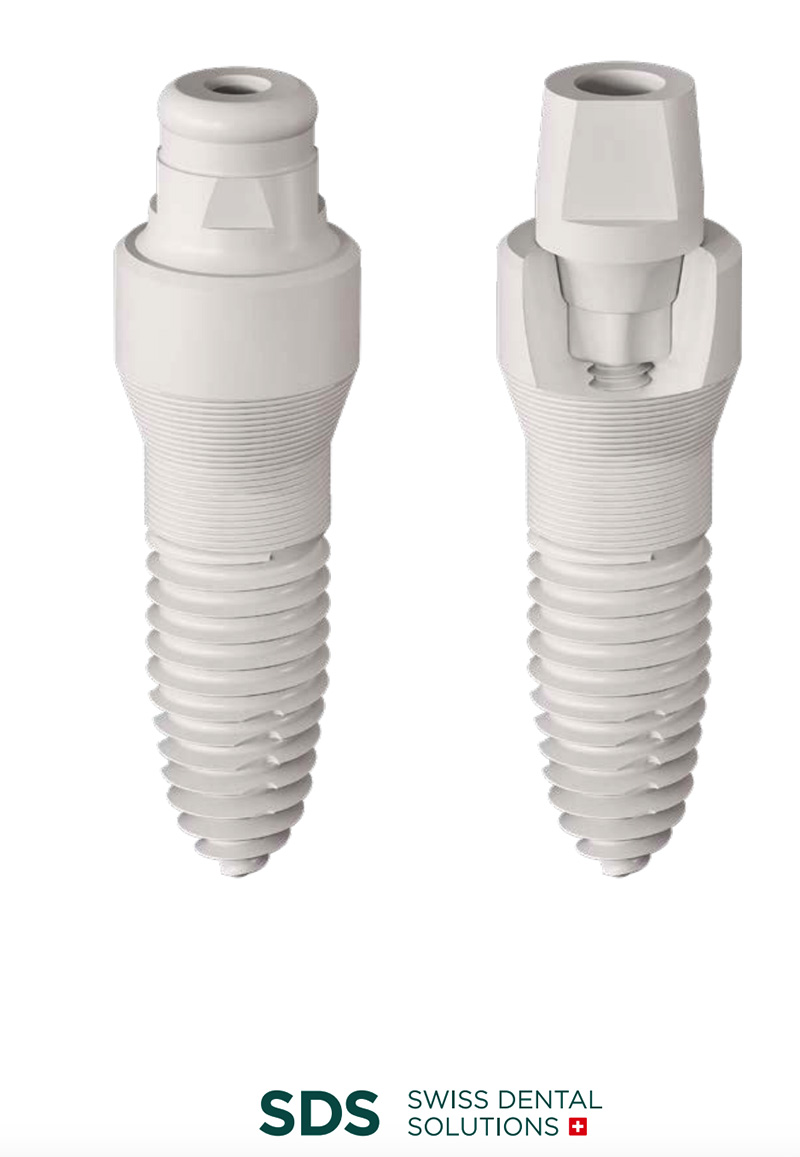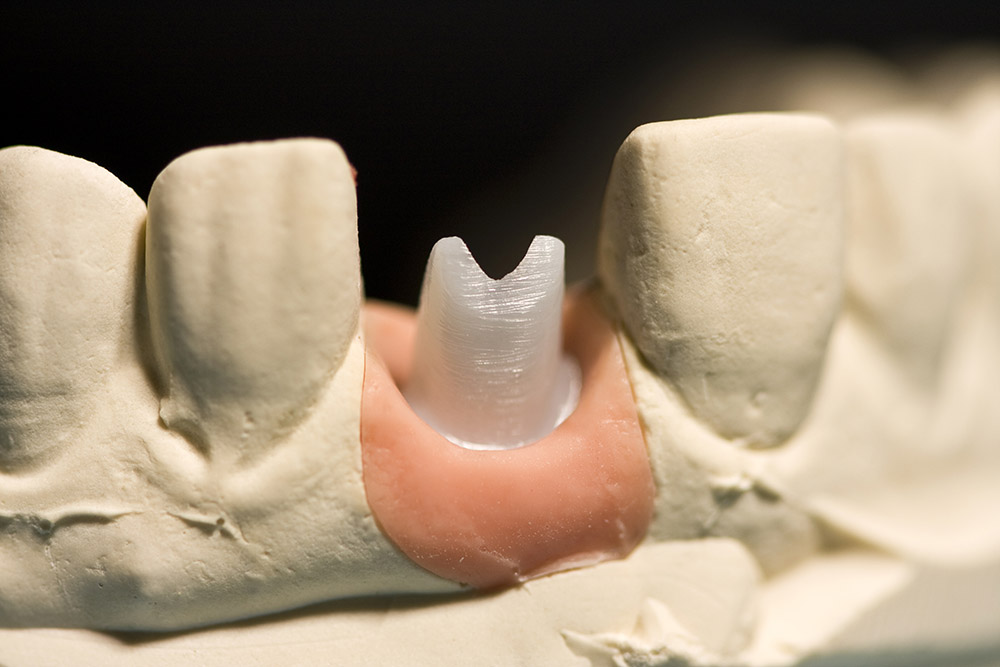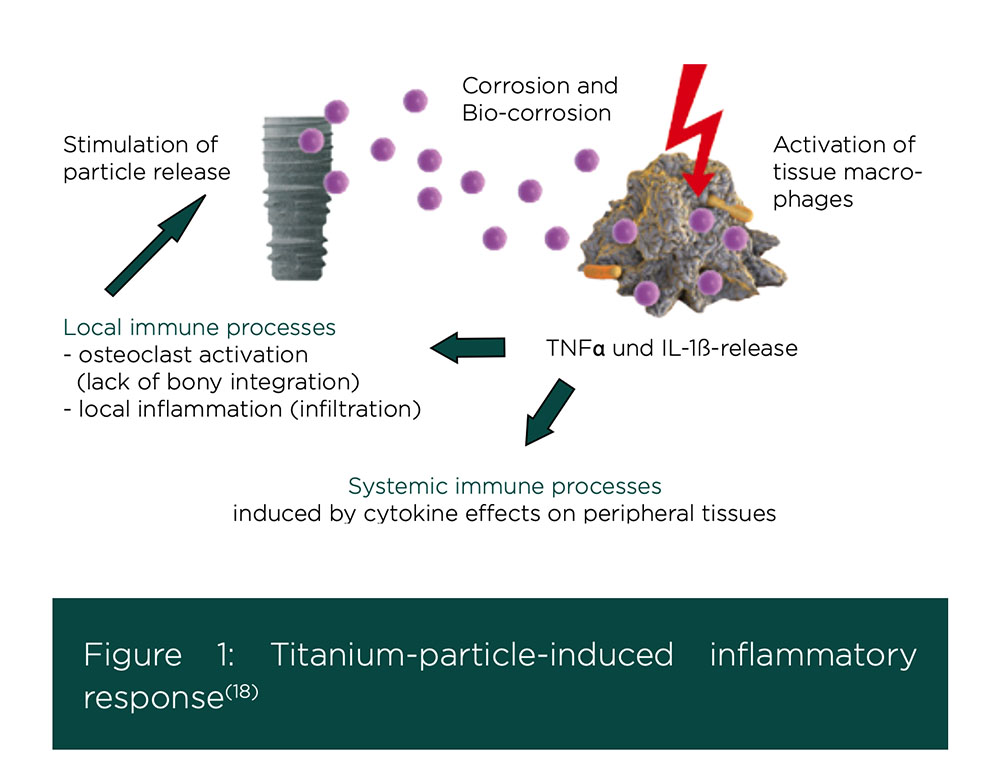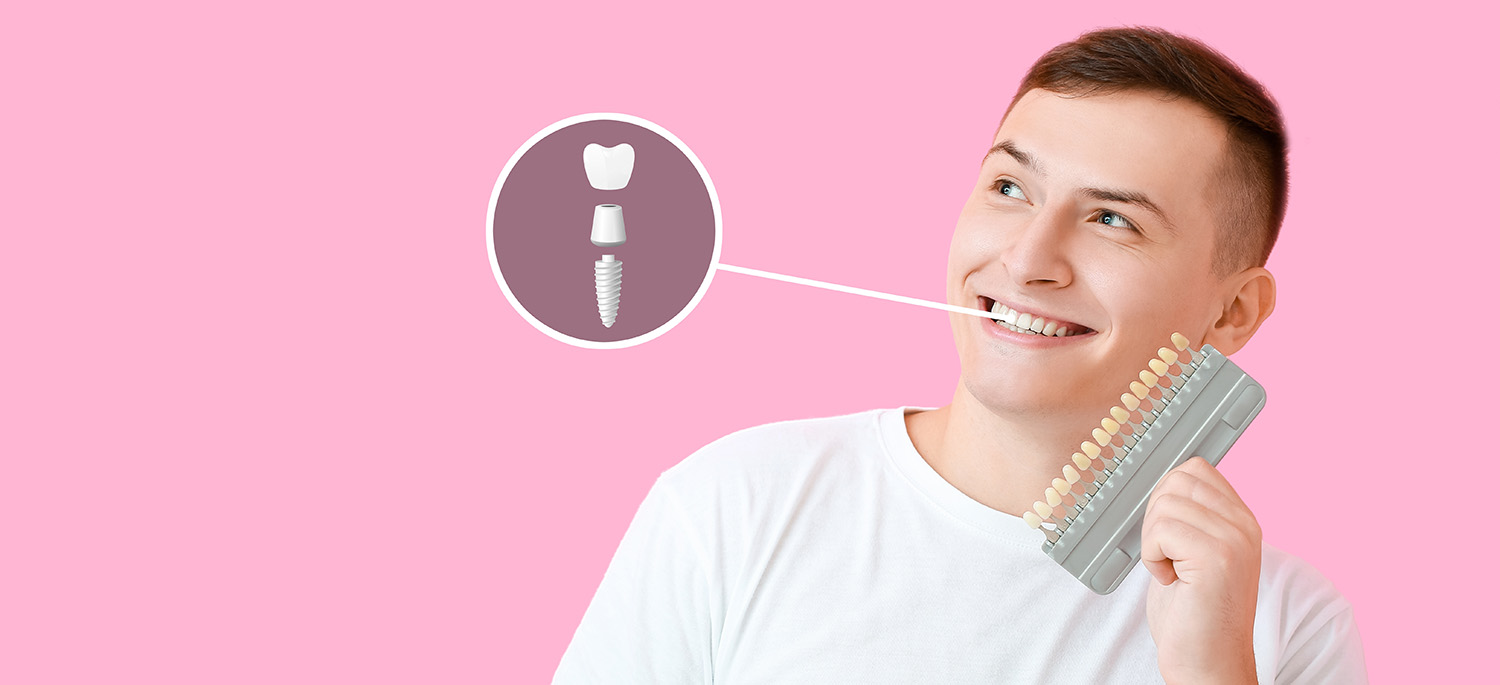
The author of the article
Boris Lipovetskiy, DMD, 31 years experience
Why choose zirconia implants when experiencing tooth loss? Dentists have long been installing titanium implants (their effectiveness has been proven by numerous clinical studies) – so why opt for all-ceramic non-metal implants made of zirconia dioxide? In this article, we will discuss the advantages of tooth implantation with zirconium implants, alongside real reviews.
At Advanced Dental Wellness Center, we employ a holistic approach to each patient. Therefore, we recommend zirconia teeth implants as an aesthetic, safe, and highly durable material.
Biocompatibility
Zirconia dioxide is a biocompatible material. It readily integrates without causing side effects. Research on biocompatibility has revealed several advantages of this material:
-
The structure of zirconia dioxide is similar to components of bone tissue. Thanks to this, the implant will not be perceived by the body as a foreign object and rejected.
-
Under thermal influence, the expansion coefficient of zirconia dioxide is approximately the same as that of bone. This significantly reduces stress at the implantation site and promotes faster osseointegration.
-
Zirconium is bioinert – it does not engage in chemical reactions with the body's soft tissues. This prevents inflammatory processes and allergies.

Aesthetic Appeal
Titanium implants are gray in color. In contrast, zirconium dioxide implants have a white, milky color. Therefore, they visually do not differ from a natural tooth or a ceramic prosthesis.
Over time, gums tend to recede. Because of this, the structure of a titanium implant may become exposed. Its metallic color would not be aesthetically pleasing, especially on the front teeth. This issue does not arise with zirconia implants due to their white color.


No risk of unsightly gray lines at the gum
Boris Lipovetskiy
Dentist with 30 years of experience
«As one ages, gum recession occurs. On a natural tooth, it has little impact on its aesthetics and appearance. However, on a titanium implant, the metallic base becomes visible. This is why I recommend zirconia implants. They maintain a natural color, and even with gum recession, the appearance of the implants is better than that of natural teeth.»
Durability and Strength
Zirconia is an exceptionally durable material when it comes to bending, compression, and fracture. Due to its polycrystalline structure, it withstands loads and is resistant to crack formation. Under impact, there is a higher likelihood of breaking a natural tooth than an implant.
Zirconia implants exhibit a high degree of osseointegration, effectively integrating into the jawbone. This characteristic, known as osseointegration, is crucial for the longevity of the implant.
Research indicates that zirconia implants have an osseointegration rate comparable to titanium, reaching over 95% within the first year after the surgery and maintaining this level in the long term.
The durability of any implant depends not only on the material but also on various factors, such as the precision of the surgical technique and post-operative care for the implant. Therefore, we recommend scheduling an individual consultation with a dentist before undergoing tooth implantation.
Zirconia is Not Susceptible to Corrosion
Zirconium oxide is a biologically inert material that does not react with the body's tissues and is not subject to corrosion in the moist environment of the oral cavity, ensuring its durability and stability over many years.
Titanium and its alloys, upon contact with oxygen, form a passive layer of titanium oxide on the surface, protecting the material from further corrosion. However, under certain circumstances, such as the presence of galvanic currents due to the existence of other metal prosthetics or very high levels of fluoride in the oral cavity, titanium may start to corrode.
In contrast to titanium, zirconia does not conduct electricity and, therefore, does not participate in galvanic corrosion. This makes it preferable for patients with existing metal restorations or high sensitivity to metals.

Zirconia dioxide is a completely hypoallergenic material. It does not oxidize and is suitable for patients with metal allergies.
Does Not Cause Sensitivity
Zirconia dioxide is practically imperceptible in the mouth. This is influenced by:
-
Low thermal conductivity, reducing sensitivity to temperature changes.
-
Absence of a metallic taste. Unlike titanium implants, zirconium implants do not have any metallic taste.
Suitable for Same Day Implantation
Zirconia dental implants can be placed immediately after tooth extraction, provided there are no contraindications.
The implant structure is designed as a monobloc – implant with an abutment. This significantly reduces the installation time. Zirconium achieves faster osseointegration, reducing the waiting time for crown placement.
Zirconia dioxide does not contain metallic components that attract bacteria. Before installation, implants are disinfected with plasma. This minimizes the risk of infection during implantation.
In our Fort Lauderdale clinic, we employ painless All-on-4 and All-on-6 implantation methods. Swiss SDS and Z-system implants are used to address complex issues and achieve long-term results.
Preserve Gum Health
The biocompatibility of zirconia dioxide plays a significant role in gum health. Due to the absence of chemical reactions, the gums do not become inflamed.
Zirconia implants are designed with smooth surfaces, without sharp angles. This ensures comfortable adaptation of the structure to the gums and eliminates any potential trauma.
Plaque does not accumulate on the smooth surface of the implant. Thanks to this property, the development of periodontitis is prevented.
Comparison of Zirconia Implants
| Characteristic | Zirconia implants | Titanium implants |
|---|---|---|
| Material | Made of zirconium oxide, which does not contain metals and has a white color similar to the shade of natural teeth | Made of a titanium alloy, which may contain other metals and has a metallic silver color |
| Biocompatibility | A fully biocompatible material due to its similar structure to bone tissue | Risk of rejection due to metallic components of the implant |
| Aesthetics | The crown looks like a natural tooth. The implant maintains a natural appearance even when the base is exposed due to gum recession | The crown looks like a natural tooth. In the case of gum recession, the metallic color of the implant becomes exposed |
| Allergy risk | Completely hypoallergenic material | Risk of allergy due to the presence of aluminum and vanadium in titanium alloys |
| Durability and strength | Strong against bending, compression, and fracture. Corrosion is excluded | Resistant to bending, compression, and fracture. More susceptible to corrosion risk |
Finaly – Top benefits of Zirconia teeth implants
These implants are highly compatible with the human body, integrating seamlessly with bone without triggering adverse reactions, ensuring a natural fit and strong healing just like natural teeth.
Designed to outlast the patient's natural dentition, zirconia implants promise a lifetime of use without the risk of decay or nerve inflammation, surpassing even the durability of natural teeth.
With their naturally white hue, zirconia implants offer an attractive and seamless match with existing teeth, contributing to a bright, uniform smile and enhancing overall quality of life.
The advanced protocols allow for teeth extraction and immediate implant placement within the same session, significantly reducing treatment time and streamlining the restoration process.
By avoiding metals, these implants negate potential negative systemic health impacts, providing a body-friendly solution that's 100% biocompatible and preferable for patients with metal sensitivities.
Zirconia implants eliminate the risk of unsightly gray lines at the gum line or the metallic sheen that can occur with titanium implants, ensuring a clean, natural look.
The ceramic dental implantation leads to reports of minimal pain during and after the procedure, highlighting the patient-friendly nature of the treatment.
Sources of information
- National Library of Medicine. National Center for Biotechnology Information – Zirconia in dental implantology.
- ScienseDirect – Do zirconia dental implants present better clinical results than titanium dental implants? A systematic review and meta-analysis.
- Frontiers in Dental Medicine – Zirconia Materials for Dental Implants.
- Springer Link – Clinical Oral Investigations.


